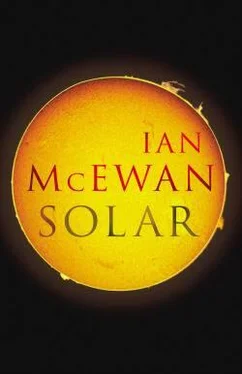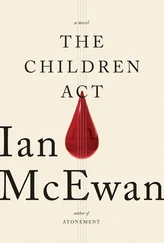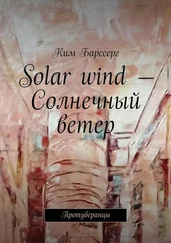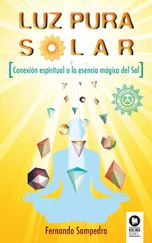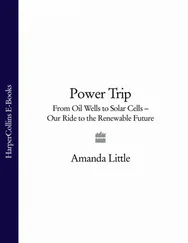Throughout, Tom Aldous kept himself well to the back of the crowd and appeared to be avoiding Beard, which was fine since both men knew the project was doomed and collusion in the fact would have been in poor taste when everyone was so happy. Braby now turned to Beard and wished him well on an eight-week journey he knew would have its hazards and hardships. He reminded the team that the climate models had predicted that the earliest and most radical signs of planetary warming would be observed in the Arctic, and said how proud he was that it was the Centre’s own Chief – many fond chuckles at that word – who was going to brave the harshest conditions in order to see for himself.
Then Beard stepped forward to say a few words. He had no idea how Braby had got hold of the idea that he was going away for eight weeks. His trip was for six nights, but it was hardly appropriate to contradict a colleague in public. Nor did he mention the toasty ship and the tasselled lamps, but instead confessed to being proud and excited to be associated with an institution that was bound for ‘great things’ – he would not allow himself to be more specific – and predicted that one day their Centre would outstrip its American rival in Golden, Colorado. A toast, a round of applause, a quick succession of handshakes and backslaps, and Beard was moving towards his taxi, with Jock Braby himself carrying his suitcase, and as the car pulled away the ponytails whooped and pounded on the roof, but Aldous was not among them.
For all the hours he spent on journeys, he was not a well-adapted traveller, not because he was chaotic or fearful, but because long journeys always brought him up against a certain mental deficiency, an emptiness, a restless boredom that was, he thought, as he buckled himself into his seat, the expression of his true state, habitually obscured by the daily round or by sleep. He was not able to read seriously on an airplane. Even on firm ground he never read full-length books all the way through. He was one of those travellers who stare out the window, regardless of the view, or at the seat in front of him, or flip backwards through an in-flight magazine. At best he read popular science magazines like the Scientific American he had now, to keep himself up to date, in layman’s terms, with physics generally. But even then his concentration was marred, for a lifetime’s habit made him inconveniently watchful for his own name. He saw it as if in bold. It could leap out at him from an unread double page of small print, and sometimes he could sense it coming before the page-turn. Another distraction was an overdeveloped awareness of the precise location in the aisle of the drinks trolley, of that muffled clinking sound and its asymptotic approach. And with or without a drink, he was prone at altitude to meandering sexual fantasies or memories, or a mix of both.
But with the cheers of his colleagues still resonating, Beard was doing his best, as his plane set its northward course, to be serious and settle down to read in his magazine a luridly illustrated article about photons and antimatter, and sure enough, within five minutes experienced that cool little leap of the heart when he saw in parenthesis the entire cue – the Beard-Einstein Conflation. Not the Bose-Einstein Condensate, not the Einstein-Podolsky-Rosen Paradox, not pure Einstein, but the genuine article, and in his simple joy he longed all the harder for the trolley, still two and a half metres distant. He was well aware of the singularity by which the tiny vehicle of his talent, a child’s tricycle say, had hitched a ride behind the juggernaut of a world-historical genius. Einstein had upended mankind’s understanding of light, gravity, space, time, matter and energy, founded modern cosmology, spoken out on democracy, on God or his absence, argued for the Bomb, then against it, played the violin, sailed boats, had children, given his Prize money to his first wife, invented a fridge. Beard had nothing beyond his Conflation, or his half of it. Like a shipwrecked man, he had clung to this single plank, and counted himself privileged. How had it come about? Perhaps it was true that the Committee, angrily divided between three front-runners, had settled for its fourth choice. However Beard’s name had slipped through, it was generally felt that it was the turn of British physics anyway, though, in certain senior common rooms, some muttered that the Committee in its compromise had confused Michael Beard with Sir Michael Bird, the gifted amateur pianist who worked on neutron spectroscopy.
Those ungenerous rumours aside, what a brief state of grace, those blessed months of frenetic calculation and revision in the old rectory on the South Downs, trapped in a soundscape formed by the complaints of his first wife, Maisie, and the incessant wailing of the lodgers’ identical babies. What a feat of concentration! So long ago, so hard to recall the driven kind of person he once was or the actual texture of those days. It sometimes seemed to Beard that he had coasted all his life on an obscure young man’s work, a far cleverer and more devoted theoretical physicist than he could ever hope to be. He had to acknowledge the fact – that twenty-one-year-old physicist was a genius. But where was he now? Was he really the same Michael Beard whose paper caused Richard Feynman to explode with excitement and interrupt the proceedings of the 1972 Solvay Conference? Did anyone still remember or care about that famous Solvay ‘magic moment’? As for those shrieking twins, he had seen for himself last year, at the wedding of one or the other, that they were now overweight coves in their thirties, a dentist and a hedge-fund manager, identically pompous. As old as the Conflation.
After drinks and lunch and more drinks, he allowed the magazine to slide from his lap and, gazing at the button that held in place the headrest cover of the seat in front (he did not have a window seat), fell into familiar reveries and took it as a sign of burgeoning mental health that Patrice was not his sole topic. He had been sent biographical notes and pictures of his fellow guests on the frozen fjord and been struck by the smile of a certain conceptual artist whose name, Stella Polkinghorne, was familiar, even to him. Her most recent media storm involved an accusation of an infringement of copyright that had never come to court. She had constructed for the Tate Modern a scaled-up Monopoly set on a playing field in Catford, each side of the painted board a hundred metres long, a space one could stroll about in, with near-life-sized houses on Park Lane and the Old Kent Road, accommodation one could enter to observe an unequal distribution of wealth. In the empty homes of the Mayfair rich, tapestries, woodcuts by Dürer and discarded champagne bottles, while down the Old Kent Road, among the East End poor, junk-food wrappers, discarded syringes, a TV playing soaps. The dice were two metres high, the Community Chest cards were lowered in place by crane, the dog-eared banknotes made of plywood were in tottering 25-metre piles on the grass. In all, an indictment, it was supposed, of a money-obsessed culture. Do Not Pass Go was celebrated, reviled, photographed from the air by passengers on their descent into Heathrow. Children liked stampeding across the board in herds and crawling inside the top-hat token. The makers of the game began a legal case, which they dropped in the face of public derision and rising sales. A local-business association on the Old Kent Road also brought a case, or said it would, and nothing was heard.
Polkinghorne’s disembodied smile presided over Beard’s melancholic reflections on the end of his marriage. He experienced a genial blend of sadness, anger, nostalgia (those early months were bliss), and a warm, self-forgiving sense of failure. And repetition. Five was enough. He would never go through this again, and with that thought came the familiar recognition of his new freedom. When matters were settled, he would buy a small London flat, he would be responsible only for himself, he would guard ferociously his independence and cure himself of this strange lifelong habit of marriage. It was lovers he needed, not wives.
Читать дальше
